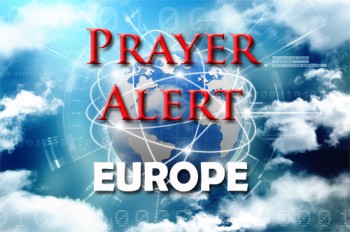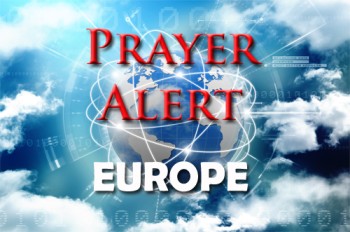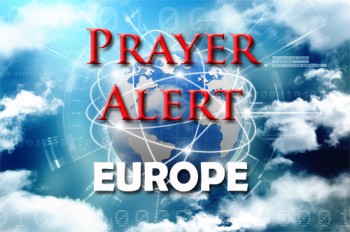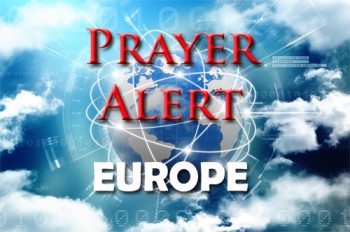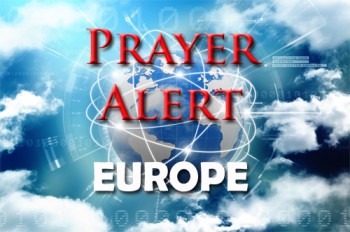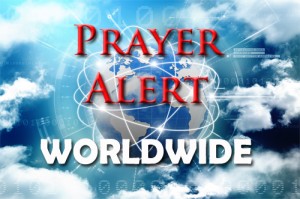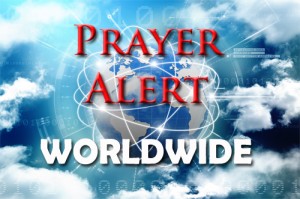Displaying items by tag: Election Results
France: leftist alliance rejects Macron’s calls for coalition after inconclusive election
Emmanuel Macron has urged France's mainstream political forces to form a coalition after the elections resulted in a hung parliament. The New Popular Front, which emerged as the largest bloc with around 190 seats, have demanded that Macron accept their pick for prime minister and allow them to form a government. They insist that respecting the election results is essential for democracy. Any new government - of the left, centre, or a broader coalition - could quickly fall victim to a no-confidence vote from the opposition if it has not secured sufficient support. One commentator has said that it will have to seek to pass laws on a case by case basis, with ad hoc agreements. For more details about how Marine le Pen’s dreams have unravelled - her party unexpectedly came third in the elections - see
The Netherlands: controversial far-right party wins most seats
Geert Wilders, a controversial populist leader in Europe, is poised for victory in the Dutch general election. His Freedom Party (PVV), which, amongst other things, advocates bans on mosques, the Quran, and Islamic headscarves in government buildings, secured 37 out of 150 seats in the Dutch parliament. This marks a significant achievement in his career, which has primarily focussed on criticising Islam and mainstream politics. This unexpected win has positioned the PVV as a prominent political force. The left-wing coalition under Frans Timmermans came second with 25 seats, while the ruling VVD, led by outgoing prime minister Mark Rutte, won a disappointing 24 seats. The election signifies a drastic shift from the previous poll two years ago when PVV won only 17 seats. Despite Wilders' success, many remain sceptical about his ability to form a coalition and become the Dutch prime minister due to his divisive rhetoric and extremist positions. The Netherlands is now poised for a complex negotiation to determine the country's leadership.
France: legislative election upset
France is in uncharted waters after President Emmanuel Macron lost his majority, with a large, shaky opposition bloc on the left and many more far-right lawmakers surging into the National Assembly. Just two months into his second five-year term, Macron has the narrowest majority in French political history and must govern through coalition-building. Marine Le Pen's strategy to turn her far-right party mainstream has succeeded, increasing its lawmakers almost tenfold and cementing the party's rise from fringe status to mainstream opposition. The largest opposition group can claim the privilege of chairing the National Assembly's finance committee - a strategic role because the committee's president sets the agenda, giving any opposition lawmaker determined to hamstring the majority a tool to do so. It also confers powers of inquiry, with access to tax and public spending documents usually off-limits. Marine Le Pen says she intends to lobby for this highly strategic post.
Ireland: new government needed
Ireland needs to form a new government after election results showed Fianna Fáil winning 38 seats, Sinn Féin 37, and Fine Gael 35. The numbers indicate that negotiations to establish a government could be prolonged. The prospect of the left-wing, nationalist Sinn Fein entering Ireland’s government looks likely. This could make some people uncomfortable when they recall all the ‘Troubles’ of the past. In a world of fragmenting politics with Ireland’s Fine Gael and Fianna Fáil, onlookers say it was only a matter of time before Sinn Fein found a route to power. Before the election, both the other parties had ruled out forging a coalition with Sinn Fein, citing its tax policies and IRA past as deterrents. Sinn Fein leader Mary Lou McDonald has said she would ask the EU to support Irish reunification if she was part of the next government.
Russia: election results hit ruling party
After the elections on 8 September, the ruling party’s majority in Moscow has decreased dramatically (26 seats out of 45, down from 40). This follows two months of intense protest, denouncing the authorities' decision to ban opposition and independent candidates from standing and calling for free and fair elections. The rallies gathered tens of thousands of people; thousands were detained by police, and several protesters have been sentenced to jail terms for ‘using violence against law enforcement’. Experts believe the backlash against Putin's grip on power is getting stronger, and that protest voting will be strong in the 2021 elections which will determine the political future of Russia. Pray for a wave of truth, humility and justice to flow over the nation in the coming months and years.
Pakistan: election in disarray
Pakistan’s election results are in doubt, with the incumbent Pakistan Muslim League (PML) rejecting the result amid widespread allegations of ballot rigging in favour of Imran Khan’s PTI party. With most of the votes counted, Khan’s party is in the lead, but the results have not yet been confirmed. The election was marred by violence, with 31 killed by a bomb at one polling station. The PML leader said his party’s polling agents had been evicted from dozens of stations by security officials before a final tally, so they were unable to monitor potential tampering. In fact almost every party except the PTI said their polling agents had been excluded from polling stations. For the first time ever, no Christian candidates were picked by the mainstream parties for the national assembly, so Christians will be bereft of a voice whoever wins. Khan said he will not change the blasphemy laws, rather he will ensure they are enforced. The blasphemy law is a discrimination tool for persecuting Christians.
Kenya: Election
A top Kenyan electoral official said the election commission's database was unsuccessfully targeted by a hacking attempt. Wafula Chebukati, the commission chairman’s comments came on the 10 August after allegations by opposition leader Raila Odinga that hackers infiltrated the database and manipulated results in favour of President Uhuru Kenyatta in the election on 8 August. At the time of writing the tallying of the final results is continuing with Kenyatta holding a strong lead. Clashes between police and opposition supporters have erupted in several areas with people being shot and killed, following Odinga's allegations. In the port city of Kisumu, the hometown of Odinga, police used tear gas and shot at supporters of the opposition leader, said demonstrator Sebastian Omolo. Kisumu shopkeeper Festus Odhiambo said he was praying for peace even as protesters blocked roads into city slums with bonfires and boulders. Everyone is keeping an eye on what the opposition leaders will do if Kenyatta is declared the winner. See: http://www.aljazeera.com/news/2017/08/kenya-police-protesters-clash-poll-fraud-claim-170809081850902.html
